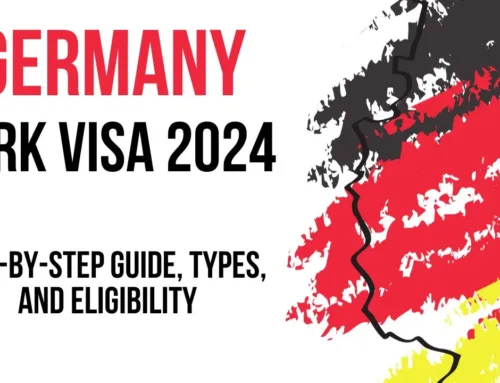Overcome Bottleneck Occupations Germany and Unlock New Career Opportunities
Introduction: Understanding Bottleneck Occupations and Their Importance
Bottleneck Occupations Germany are critical jobs in Germany where the supply of skilled labor cannot meet the demand. These professions are highly sought after due to the severe shortage of qualified workers, creating a bottleneck in the labor market. This shortage is particularly prominent in key industries such as healthcare, IT, skilled trades, and social work, making them top priority sectors for immigration and job opportunities.
For foreign workers interested in moving to Germany, understanding bottleneck occupations is not only essential for finding employment but also for improving your chances of receiving the Chancenkarte (Opportunity Card). The Chancenkarte is part of Germany’s Skilled Worker Immigration Act, designed to attract highly skilled professionals to fill these labor shortages.
In this detailed guide, we’ll explore the most in-demand bottleneck occupations for 2024, the sectors that are severely affected, and how working in these roles can boost your Chancenkarte application. We will also provide key tips on improving your chances of success, including insights into German labor market trends, job application strategies, and how to ensure your qualifications align with German standards.
For more official details about the Chancenkarte and skilled immigration pathways, you can visit Germany’s Skilled Worker Immigration Act Guide.
What Are Bottleneck Occupations?
Bottleneck occupations refer to jobs where the shortage of skilled workers creates a labor market gap, hindering economic growth and service delivery. These shortages are often found in technical, healthcare, and vocational professions, where highly specialized skills are needed but not easily available.
Germany publishes a yearly list of bottleneck occupations, highlighting sectors where the demand for skilled workers far exceeds supply. The 2024 Bottleneck List reveals that out of the nearly 1,200 jobs studied, 183 are experiencing labor shortages. Though this is a slight decrease compared to previous years, it still underscores a significant labor gap that skilled workers can fill.
Why Bottleneck Occupations Matter for Chancenkarte Applicants
Foreign workers trained in one of the bottleneck professions have a higher likelihood of obtaining the Chancenkarte. This is because Germany’s immigration system uses a points-based system, where applicants earn points for various qualifications, including education, professional experience, and language skills. One of the key ways to earn additional points is by having training or experience in a bottleneck occupation.
For Chancenkarte applicants, understanding and targeting these occupations can give you a competitive edge, making your application stand out. By choosing a career in a bottleneck sector, you not only improve your chances of receiving the Chancenkarte but also position yourself for a rewarding career in Germany.
Bottleneck Occupations for 2024: An In-Depth Look at Key Sectors
Germany’s 2024 bottleneck list highlights several critical sectors that are facing severe shortages. These professions span multiple industries, from healthcare and technical trades to childcare and IT. Below is a detailed overview of the most in-demand bottleneck occupations.
1. Nursing and Healthcare Professionals
The healthcare sector is one of the most critical areas experiencing labor shortages in Germany. The country’s aging population has put immense pressure on the healthcare system, increasing the demand for nurses, healthcare assistants, and medical professionals. The need for nursing professionals is particularly acute, as they are essential for providing high-quality care to the elderly and managing chronic health conditions.
Professionals in this field can expect not only stable employment but also opportunities for career advancement, as healthcare remains a top priority for Germany’s economy. Moreover, nursing professionals earn additional points under the Chancenkarte points system, making it easier for them to secure a visa and find employment.
To understand more about the healthcare sector and job opportunities, visit the Make It in Germany healthcare page.
2. Skilled Trades and Road Haulage Workers
The shortage of skilled tradespeople is another pressing issue in Germany, with high demand for electricians, plumbers, carpenters, and mechanics. Skilled workers in these fields are crucial for maintaining the country’s infrastructure, ensuring that transportation networks, construction projects, and utilities continue to run smoothly.
Germany is also facing a significant shortage of road haulage workers—truck drivers and logistics experts who play an essential role in moving goods across the country. This shortage has created bottlenecks in the supply chain, leading to delays and higher costs for businesses. As infrastructure development continues, the demand for skilled tradespeople and logistics workers will only grow, making these professions attractive for skilled immigrants.
3. Childcare and Social Work
The growing need for early childhood educators, social workers, and other social service professionals is another critical bottleneck in Germany. As more families seek quality early childhood education and support services, the demand for childcare professionals has skyrocketed.
Social workers also play a vital role in supporting communities, providing essential services such as counseling, family support, and crisis intervention. The shortage in this sector is driven by increased demand for social services, as well as challenges in retaining qualified staff due to the demanding nature of the work.
4. Technical Occupations in IT and Construction Planning
Germany’s commitment to digitization and infrastructure development has led to a massive increase in demand for IT professionals and construction planners. As industries embrace technology, the need for skilled workers in IT and software development has grown significantly. IT professionals, particularly in cybersecurity, software engineering, and data analytics, are in high demand.
Similarly, the construction industry is experiencing labor shortages, particularly in construction planning and project management. These professionals are responsible for designing and managing large-scale projects, from new buildings to public infrastructure. With Germany investing heavily in infrastructure and smart city initiatives, opportunities for skilled workers in these fields will continue to expand.
5. Food and Beverage Industry
The food and beverage sector is another area facing labor shortages, especially in roles such as chefs, culinary specialists, and technical service personnel in hospitality. The demand for skilled professionals in this sector is driven by both domestic needs and the country’s growing tourism industry.
In recent years, the food and beverage industry has faced increasing challenges due to the pandemic, making it even more difficult to find and retain skilled workers. This shortage offers significant opportunities for foreign professionals with culinary expertise or experience in hospitality management.
Additional Sectors with Bottleneck Occupations
In addition to the key sectors outlined above, several other industries are facing labor shortages:
- Engineering and Technical Services: Skilled engineers and technical maintenance workers are in high demand as Germany continues to modernize its infrastructure and industrial capabilities.
- Logistics and Supply Chain: Beyond truck drivers, there is a growing need for warehouse operators, supply chain managers, and logistics specialists to streamline the movement of goods and ensure the efficient operation of supply networks.
- Manufacturing and Production: With Germany being a global leader in manufacturing, there is a continuous demand for workers in production, assembly, and machine operation, especially those with vocational training.
How to Maximize Your Chancenkarte Application
Securing the Chancenkarte requires careful planning and attention to detail. Below are some tips to help improve your chances of success:
- Target High-Demand Sectors: Focus on applying for jobs in bottleneck occupations. These sectors offer additional points, making it easier to qualify for the Chancenkarte.
- Obtain German-Recognized Certifications: Ensure that your qualifications and training meet German standards. Many professions, particularly in healthcare and technical fields, require specific certifications to practice in Germany.
- Highlight Your Vocational Experience: Emphasize your experience in the bottleneck sector when applying for jobs. Employers are actively looking for workers with proven skills in high-demand industries.
- Improve Your German Language Skills: While fluency is not required for all jobs, improving your German language proficiency can significantly boost your chances of finding employment and integrating into the German workforce.
- Stay Updated on the Bottleneck List: Germany updates its bottleneck list regularly. Keeping track of these updates will help you stay informed about the most in-demand professions and adjust your career path accordingly.
For more detailed information about the German labor market and the application process, visit the Make It in Germany Job Portal.
Challenges and Realities of Working in Bottleneck Occupations
While bottleneck occupations offer significant opportunities for skilled workers, they also come with challenges:
- Long Hours in Healthcare: Nursing professionals may face long working hours and high-stress environments due to staff shortages and the increasing demand for eldercare services.
- Physically Demanding Work in Skilled Trades: Electricians, carpenters, and mechanics often work in physically demanding environments, with long hours and the need for on-site work in varying conditions.
- Keeping Pace with Rapid Technological Change: IT professionals must continuously update their skills to remain competitive in a fast-evolving industry where new technologies and methodologies are constantly emerging.
Conclusion: Bottleneck Occupations as a Pathway to Chancenkarte Success
In conclusion, understanding and targeting bottleneck occupations is key to securing the Chancenkarte and establishing a successful career in Germany. Whether you’re trained in healthcare, IT, skilled trades, or hospitality, your skills are in high demand, and Germany offers a wide range of opportunities for foreign professionals.
By focusing on sectors experiencing labor shortages, you can increase your Chancenkarte points, improve your job prospects, and make a valuable contribution to the German economy. Be sure to keep an eye on the bottleneck occupation list and take proactive steps to align your qualifications with German standards.
For more insights into bottleneck occupations and the Chancenkarte application process, visit the official Chancenkarte page.



